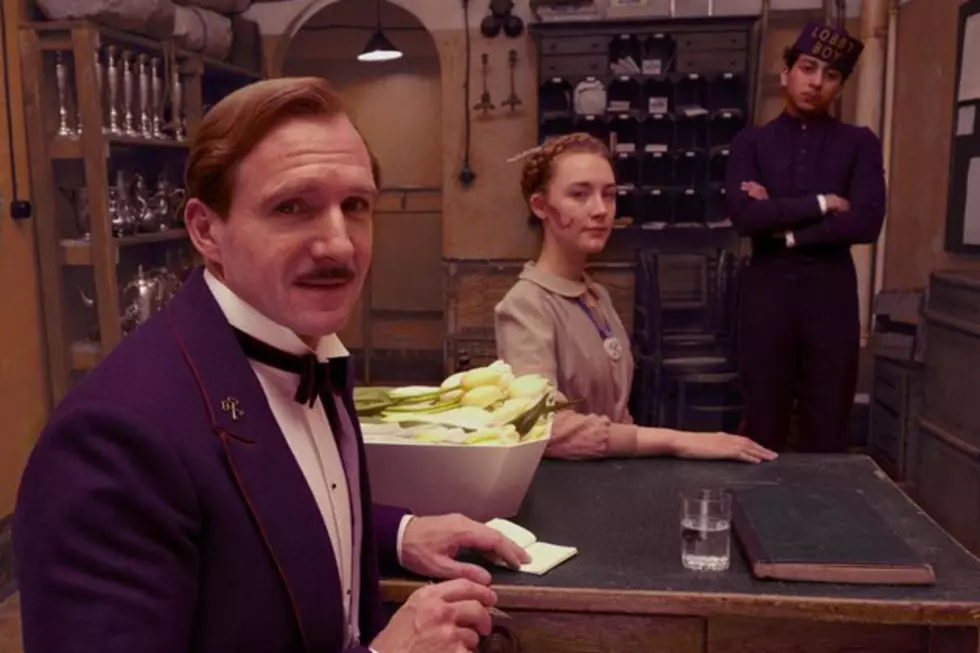
‘The Grand Budapest Hotel’ Review
Wes Anderson has finally done it. He's gone and created his own country.
Zubrowka, the fictional town at the heart of 'The Grand Budapest Hotel,' is positioned on the farthest Eastern edge of Europe's great empire. It is a melange of stylistic flourishes and decorative signifiers from a make believe 20th Century - a memory of a memory, a fastidious, whimsical take on real horrors - a storybook samizdat that entices with madcap adventure then goes in for the kill with existential dread. It is an incredible place to visit.
Unlike 'The Darjeeling Limited' and 'The Life Aquatic with Steve Zissou,' 'The Grand Budapest Hotel' earns its melancholic undercurrent. While this isn't Wes Anderson's best film - that battle still rages between 'Moonrise Kingdom' and 'Rushmore' - this one is still a must see for anyone enamored of Anderson's inimitable style.
98% of the film is set in 1935, in Zubrowka's crown jewel of elegance, the Grand Budapest Hotel. It sits atop a funicular, has a Turkish bath, is a sea of pastel colors and receives daily deliveries of the most delicious looking pastries ever put to film. Ralph Fiennes is M. Gustave, the legendary concierge, the engine that keeps the place running. To look at him (or to smell him) you'd think him something of a fop, but his proclivity for rich older women and the tendency to slip an unexpended swear word in with all the dandyish patter proves him to be a bit of a rogue.
He's taken young Zero (Tony Revolori) under his wing. As his ubiquitous purple fez says, he's the new lobby boy, but also a refuge from a fictional Middle Eastern country. The pair then get entangled in a rather complex and, admittedly, inscrutable plot involving a will, a stolen painting and the extended Desgoffe und Taxis clan - a Mittel Europa line with centuries of in-breeding, intrigue and insanity. Jason Schwartzman is in the film for two minutes. Bill Murray for one. Bob Balaban for, seriously, forty-five seconds tops.
All you really need to know is that great faces like Willem Dafoe and Adrien Brody and Mathieu Amalric all end up running around the alpine train stations, monasteries, alleyways and prison fortresses of Zubrowka, all designed to the nth degree fusing silent film tropes, miniatures, and stage-ready backdrops. There are even a few transitions done with lighting, just to be extra precious. This is, without question, the most Wes Anderson-y of all of Wes Anderson's films, at least from a design point of view.
That's the positive. The negative is that beneath the razzle-dazzle the story is more about mood, theme and feelings than a gut-level plot that you can bite into. With characters this cartoonish it is a little difficult to engage them as people. As a crutch, Anderson leans on the story momentum from the rise of Fascism and, by and large, this is enough to lend the film the authenticity it needs. Quite frankly, here in 2014, just how many more straightforward movies about World War II destroying the glories of Europe do we need to see? Maybe by filming mostly around it, as this film does, its absence becomes a larger presence.
As with the final line from 'Inglourious Basterds,' another fantasy set against Europe's mid-century madness, Anderson is well aware what he's created here. F. Murray Abraham's character tells Jude Law that M. Gustave knew he was a throwback to an earlier time, one that probably only existed in his mind.
Abraham plays the adult Zero, who tells his story to Law in 1968, when Zubrowka, and the hotel, is altered by socialism. Law is an author, recalled in flashback by Tom Wilkinson, who writes his great book about the Grand Budapest Hotel in 1985, when the region is thawing out. A young girl today - but decked out in 80s retro to make it interesting - is reading Wilkinson/Law's book in a park in the city of Lutz, dedicated to the author (our "National Treasure").
These flashes in time take up very little of the actual movie, and would be the first thing snipped should a studio executive ever dare to give an artist like Anderson notes. They are, however, everything. They don't just wink to the audience about Anderson and his decades of stylistic references. They express how timestamped stories remain vital as the clock ticks on, and that to some the flourishes can be as important - or at least as tasty - as the pastry underneath.
'The Grand Budapest Hotel' opens in theaters on March 7.
Jordan Hoffman is a writer, critic and lapsed filmmaker living in New York City. His work can also be seen on Badass Digest and StarTrek.com.
More From WOMI-AM

![Bill Murray Joins John Prine, SteelDrivers On Stage at Opry [VIDEO]](http://townsquare.media/site/77/files/2018/09/Grand-Ole-Opry-via-YouTube.png?w=980&q=75)








